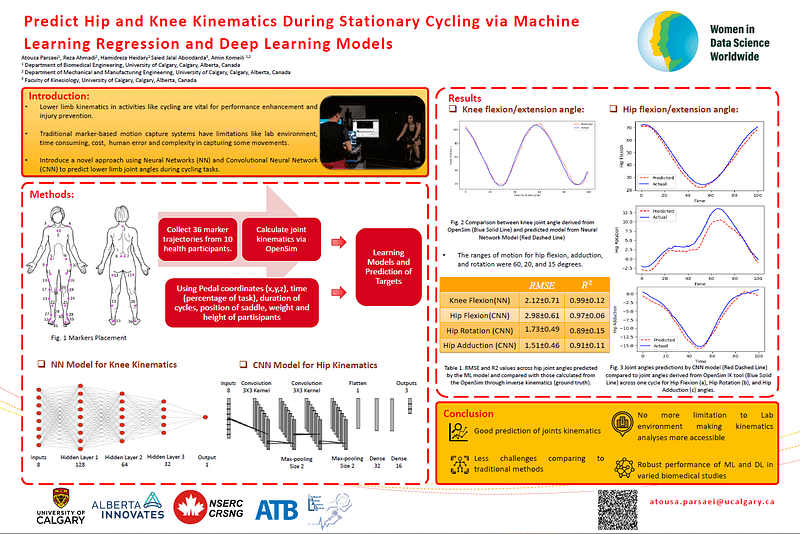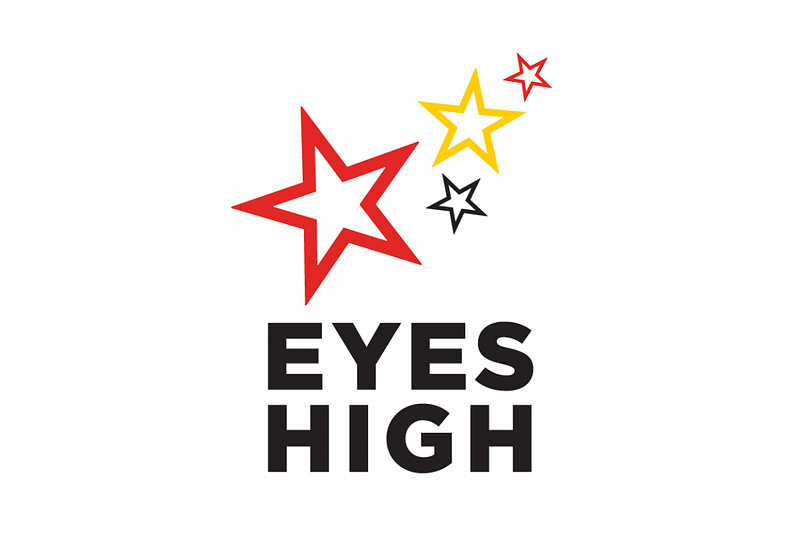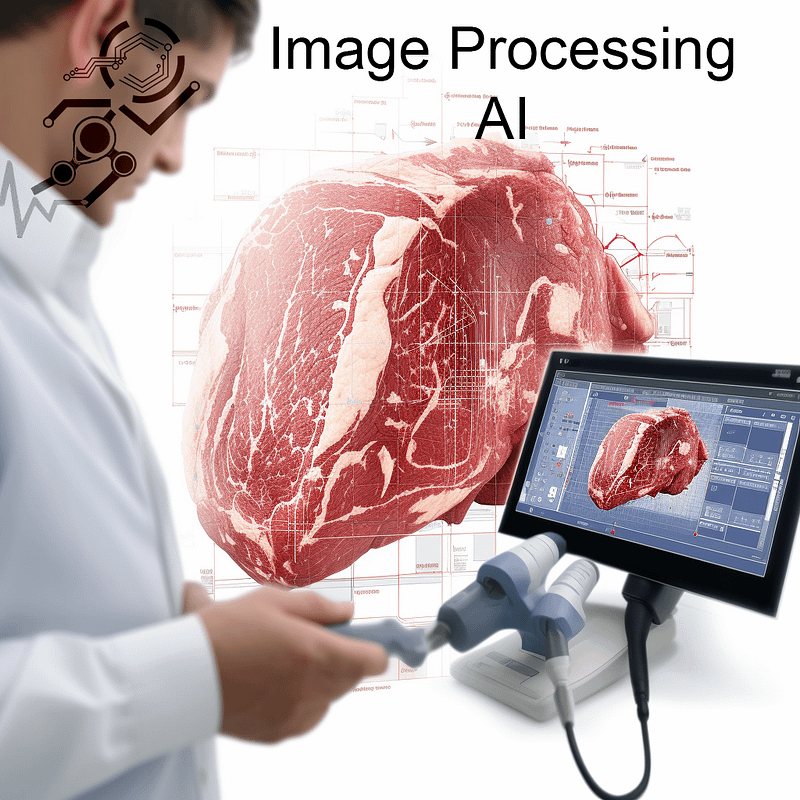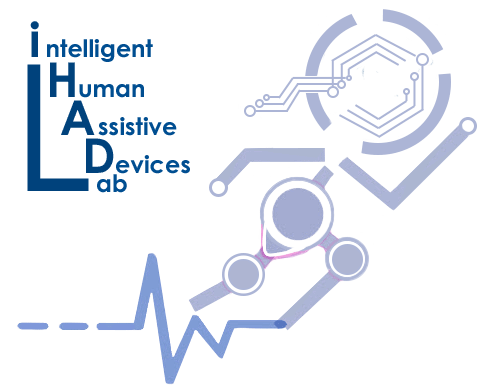2024-04 Cortisol Biosensor Project Wins Silver Medal at Engineering Capstone

A team of engineering students from the University of Calgary’s Schulich School of Engineering, guided by their academic advisor Dr. Amin Komeili, has achieved remarkable success, securing second place at the engineering capstone fair. Their project, titled “Developing a Biosensor to Detect Cortisol Levels In The Human Body,” earned them a well-deserved silver medal in the electrical engineering department. This innovative project highlights the interdisciplinary approach to tackling real-world health monitoring challenges. Over nine months, the team, consisting of Mitchell Rhead, Ahmed Asiff, Vyshnavi Devarakonda, Carter Fuchs, and Thanusha Veeraperumal, worked diligently to develop a biosensor capable of monitoring cortisol, a key stress indicator. The development of a potentiostat circuit and a user-friendly software application for cortisol level monitoring stands out as a major achievement of this project. Acknowledgments were made to Dr. Amir Sanati Nezhad and his team for their support and contributions, which were vital to the project’s success. The project, spearheaded by students and supported by their academic and industry mentors, exemplifies the potential of collaborative engineering efforts in advancing health monitoring technologies. As the team looks forward to making further contributions in engineering, their project serves as an inspiration for future innovations in the field of health technology.
Predict Hip and Knee Kinematics During Stationary Cycling via Machine Learning Regression Models and Deep Learning Models

To improve athletes’ performance and prevent injuries, an understanding of the kinematics of lower limbs is becoming increasingly important in rehabilitating lower extremities with cycling ergometer, particularly the hip and knee joints. Multiple methods are being used for capturing motion and simulating kinematics of motion. Motion capture system is a common method for motion studies, which includes placement of reflective markers on the lower limbs (at about 36 locations), as well as the use of cameras to track the trajectory of markers. However, these methods require complex and expensive equipment, which is limited to the laboratory environment, might face some difficulties in finding some hidden trajectories, and are typically expensive and time-consuming. The purpose of this study is to integrate machine learning and deep learning methods with data from a motion capture system to develop a model that can predict where markers will be placed on the hips and knees on the basis of an individual’s anthropometric information and the cycling device dimensions. To address this objective, this study leveraged a Convolutional Neural Networks (CNNs) model and Neural Network (NN) regression model to predict the hip and knee joint kinematics during pedaling task on a stationary cycling ergometer. The present study involved 10 participants, comprising eight males and two females, devoid of musculoskeletal disorders, to ensure the purity and relevance of the data. The CNN model, designed with five hidden layers, was meticulously trained on this dataset. And three hidden layers were created for the NN model. Our results showed a notable accuracy in predicting hip joint kinematics parameters using CNN, with a Root Mean Square Error (RMSE) of 2.98±0.61° for hip flexion, 1.51±0.46° for hip adduction, and 1.73±0.49° for hip rotation. In addition, the R2 for the knee was 0.99±0.12 and the RMSE was 2.12±0.71. This research tried to underscore the efficacy of machine learning and deep learning in biomechanical applications, particularly for healthcare and sports applications. This study contributes significantly to biomechanical study of hip and knee joint, offering a potential integration of predictive models and real-time monitoring of hip and knee joint kinematics during cycling exercise with stationary ergometers. This technology has the potential to be employed in studies where motion capture lab is not available. Moreover, there are several advantages to this method, including the possibility of expanding it to studies of other parts of the body, and saving time and costs in comparison to capture motion systems. Improving and optimizing the proposed method will pave the road for developing efficient and cost-effective methods for conducting kinematics analyses. Download PDF Version
iHADLab’s Reza Kakavand Wins Prestigious Eyes High International Doctoral Scholarship

The iHADLab is proud to announce that PhD candidate Reza Kakavand has been awarded the prestigious Eyes High International Doctoral Scholarship. This esteemed scholarship is part of the University of Calgary’s ambitious Eyes High vision, aiming to position the university among the top five research institutions in Canada. The award recognizes exceptional doctoral students from around the globe, emphasizing the university’s commitment to fostering a vibrant and competitive research environment. Reza Kakavand’s groundbreaking research focuses on enhancing the efficiency of subject-specific knee joint biomechanical simulations. His work has significant implications for the understanding and treatment of osteoarthritis (OA), a condition affecting millions worldwide. By improving simulation accuracy and efficiency, Kakavand’s research promises to advance personalized medicine approaches in orthopedics, offering new hope for individuals suffering from OA. The Eyes High International Doctoral Scholarship is awarded to doctoral students who demonstrate outstanding academic and research achievements. Recipients are selected for their potential to contribute to the university’s research excellence and to the broader field of their study. Kakavand’s selection for this award underscores his exceptional contributions to biomechanical research and his potential to impact the field significantly. The iHADLab community congratulates Reza Kakavand on this remarkable achievement. His work exemplifies the lab’s dedication to advancing research that addresses critical health challenges and improves lives. The Eyes High International Doctoral Scholarship will support Kakavand’s continued research, empowering him to push the boundaries of knowledge in biomechanical simulations and osteoarthritis treatment. This award not only highlights Kakavand’s individual excellence but also reinforces the University of Calgary’s status as a leading center for research and innovation. The iHADLab remains committed to contributing to the university’s Eyes High vision by conducting high-impact research and training the next generation of leaders in biomechanics.
Closed-Postdoc position on Image Analysis and AI

This position was closed Post Date: 2024-01-16 Start Date: 2024-03-01 Deadline: This position is closed Location: University of Calgary, Calgary, Canada Lab Website: www.ihadlab.com The iHADLab at the University of Calgary made a new collaboration with an industry partner in the livestock industry to develop a device for automatic transferring of images of an ultrasound device to a cloud-based server. The aim is to predict carcass traits, including backfat thickness, intramuscular fat volume, and ribeye area, from ultrasound images and monitoring. Variations of predicted carcass traits will be monitored and quantified from a series of ultrasound scans at different times. One postdoctoral position-PhD position is available in the field of image processing and AI. Priority will be given to candidates with a background in computer engineering or those who present evidence of having experience in working with ultrasound images. This research will have a broader impact in empowering producers in disease diagnosis and monitoring the health of their animals. The technical skills gained during this research experience will help you with careers in a wide range of industries (IoT, embedded systems, manufacturing, livestock, and entrepreneurship). Qualifications: This is a postdoc position. However, we accept PhD applicants if the candidate presents evidence of extensive experience in image processing and AI. So, if you are applying for a PhD position but have no or little experience in working with ultrasound images, please do not consider applying for this position. We are seeking for candidates with extensive experience in: – Advanced Image Processing and Computer Vision Skills: Proficiency in image segmentation, pattern recognition, and feature extraction techniques specific to ultrasound images. – Machine Learning and Deep Learning Expertise: Experience in developing, training, and validating predictive models using machine learning and deep learning frameworks, especially those relevant to image analysis (e.g., CNNs). Statistical Analysis and Data Modeling: Ability to analyze and interpret complex datasets, proficiency in statistical software, and experience in predictive modeling and data mining. –Software Development: Skills in software programming for both the firmware within the circuit (possibly in C or C++) and any associated software that might run on a server to receive and manage the ultrasound scans. How to apply: Please email the following documents to amin.komeili@ucalgary.ca with the subject line “Postdoc-Ultrasound-Image processing”. Sending a message through LinkedIn will not be considered for review. CV – Highlight main research expertise, papers, patents, and related projects A brief 1-2 pages “statement of eligibility” addressing the following: What experience do you have in working with ultrasound images? A short description of your approach and the major steps you will take to achieve project aims as described in the Job Summary. A strong applicant will propose a potential deep-learning model for the segmentation of fat tissue and classification of ultrasound images in their application documents. Priority will be given to female applicants.
Closed-Postdoc position on Embedded Systems and Instrument Communication

This position is closed Post Date: 2024-01-16 We are hiring a postdoc at the University of Calgary on embedded systems and instrument communication. Available position: 1 postdoc positions- embedded systems Location: University of Calgary, Calgary, Canada Lab Website: www.ihadlab.com Job Summary: The iHADLab at the University of Calgary made a new collaboration with an industry partner in the livestock industry to develop a device for automatic transferring of images of an ultrasound device to a cloud-based server. The device will be connected to the USB port of the ultrasound scanner and will import images taken by the scanner and transfer them to a cloud server. One postdoctoral position is available in the field of embedded systems. Priority will be given to candidates with hands-on experience in embedded systems and circuit design rather than theoretical expertise. This research will have a broader impact in empowering producers in disease diagnosis and monitoring the health of their animals. The technical skills gained during this research experience will help you with careers in a wide range of industries (IoT, embedded systems, manufacturing, livestock, and entrepreneurship). Qualifications: We are seeking candidates with extensive experience in: – Embedded systems: Knowledge of embedded system design is essential, as the device will likely need a microcontroller or microprocessor to manage USB communication and control the data transfer process. – USB Protocol Interface: Deep understanding of USB standards and protocols (e.g., USB 2.0, USB 3.0) to ensure compatibility with the scanner’s USB interface. This involves managing data transfer rates, handling USB commands, and ensuring reliable communication between the device and the scanner. –Software Development: Skills in software programming for both the firmware within the circuit (possibly in C or C++) and any associated software that might run on a server to receive and manage the ultrasound scans. – API Development: Skills in creating and integrating APIs (Application Programming Interfaces) to connect mobile apps with services and data. This includes understanding RESTful services, JSON, and web service integration. How to apply: Please email the following documents to amin.komeili@ucalgary.ca with the subject line “Postdoc-Ultrasound Project”. Sending a message through LinkedIn will not be considered for review. CV – Highlight main research expertise, papers, patents, and related projects A brief 1-2 pages “statement of eligibility” addressing the following: What experience do you have in the area of embedded systems? A short description of your approach and the major steps you will take to develop the device. Priority will be given to female applicants and candidates who can demonstrate they have experience and ideas for developing the device described in the Job Summary.

